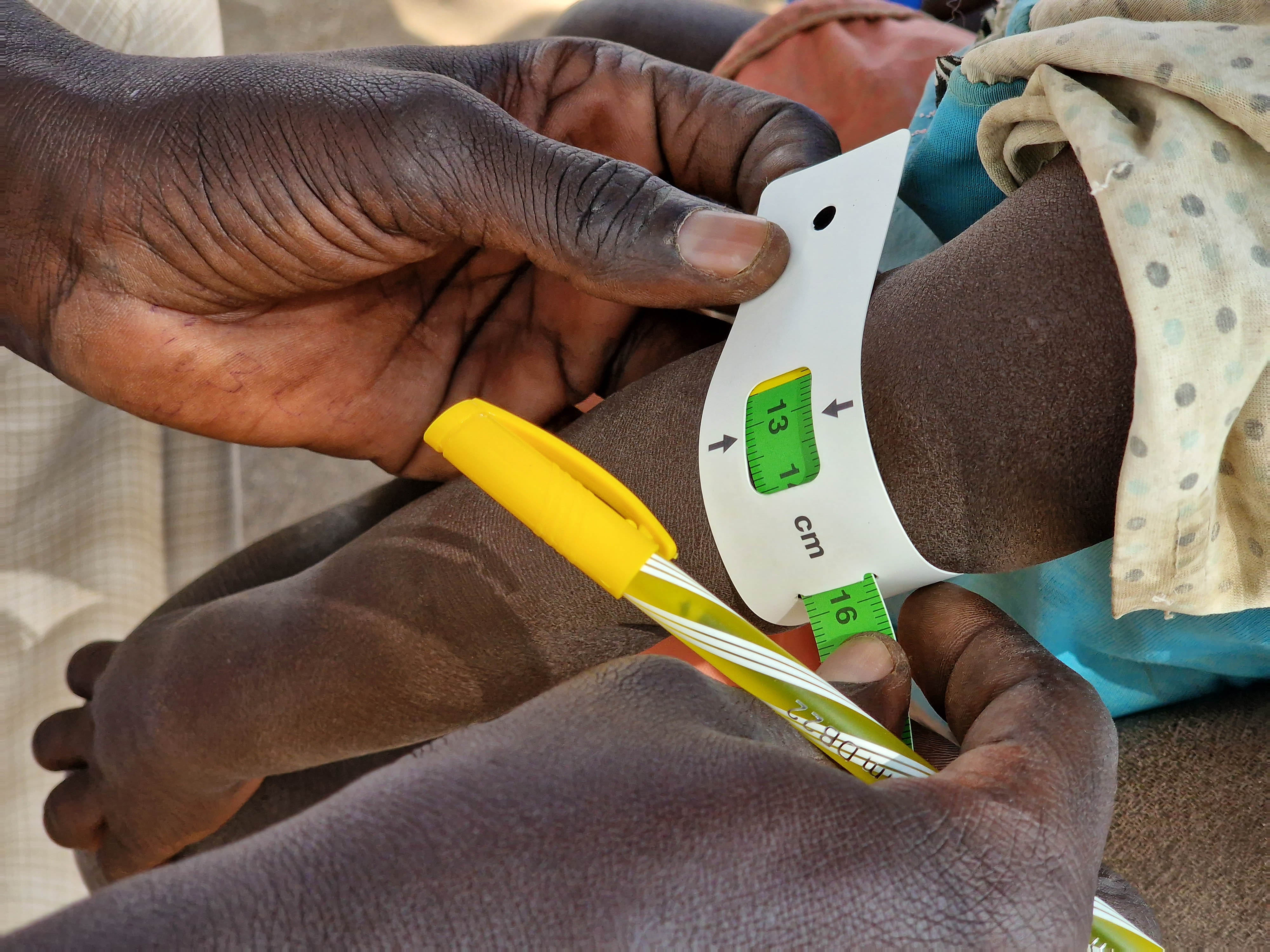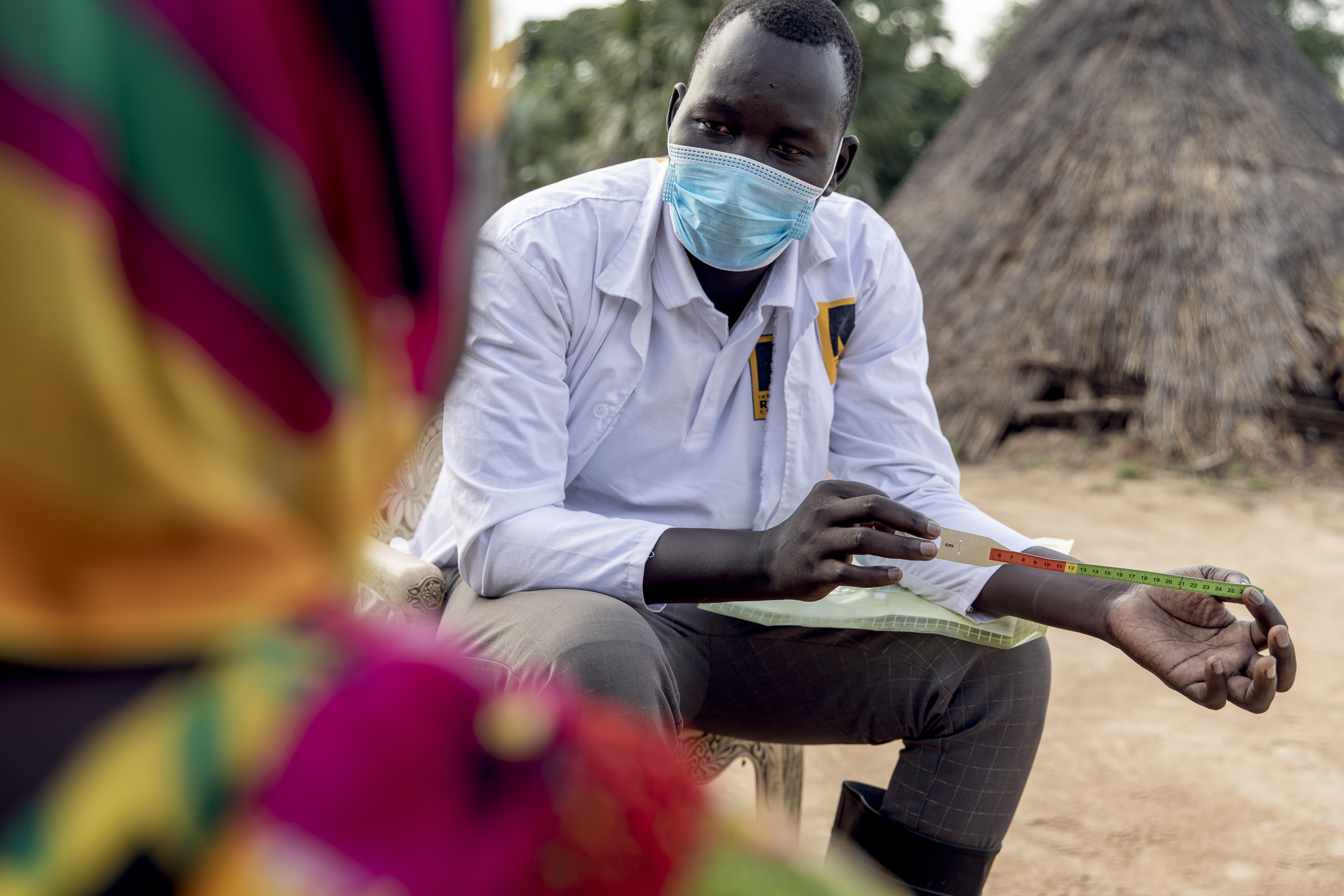
ComPAS: Combined Protocol for Severe and Moderate Acute Malnutrition Study
Streamlining malnutrition treatment to reach more children, more effectively
The primary objective of the Combined Protocol for Acute Malnutrition Study (or ComPAS) was to develop and test a simplified protocol for the treatment of severe and moderate acute malnutrition that improves the coverage, quality, cost- effectiveness, and continuity of care. Although acute malnutrition is a continuum condition, severe and moderate acute malnutrition are treated separately with different protocols and therapeutic products managed by separate UN agencies. Due to logistical constraints, many Community-based Management of Acute Malnutrition (CMAM) programs only offer treatment of severe acute malnutrition (SAM) despite the fact that children with moderate acute malnutrition (MAM) are three times more likely to die than well-nourished children. MAM is also associated with more nutrition-related deaths than SAM. ComPAS produced a new treatment protocol within the CMAM model that allows admission anywhere along the continuum of SAM and MAM, uses one therapeutic product at tapered doses as children progress through treatment, and discharges based on response to treatment.
ComPAS Stage 1
In the first stage of ComPAS, researchers conducted a comprehensive analysis of patient records from IRC and Action Against Hunger's (AAH) outpatient therapeutic and supplementary feeding programs across five countries, involving 10,000 children. This phase focused on evaluating treatment responses to refine the development of the Combined Protocol. The study revealed that two sachets of ready-to-use therapeutic food (RUTF) are sufficient to meet the energy needs of most children with severe malnutrition, while one sachet typically covers half the energy needs of children with moderate malnutrition.
Key research questions addressed included how treatment response and energy requirements vary by context, age, and clinical factors, as well as determining the optimal RUTF dosage and discharge criteria based on treatment response in different geographic settings. This foundational research was essential for defining and refining the Combined Protocol.
ComPAS Stage 2
In ComPAS Stage 2, the Combined Protocol was tested against standard treatments in Kenya and South Sudan, focusing on safety, effectiveness, and cost-efficiency. The results showed that the Combined Protocol was as effective as the standard treatment, but it offered significant cost savings, particularly in South Sudan, where it reduced the cost per child recovered.
This stage of the study also highlighted that the integrated approach—using a single, easy-to-administer treatment based on mid-upper arm circumference (MUAC)—streamlines operations and simplifies logistics. This not only reduces costs but also enhances the delivery of consistent care, potentially improving access and efficiency in managing malnutrition. The IRC is continuing to gather evidence to further validate the Combined Protocol’s effectiveness, benefits, and cost saving through our operational pilots and sub-studies. Navigate to the links below to learn more.

Project Timeline
The IRC conducts a secondary analysis of the ComPAS trial in Kenya and South Sudan to compare growth outcomes in children with severe acute malnutrition (SAM) treated with a simplified protocol (fixed RUTF dose) versus the standard protocol (weight-based RUTF dose). Results show children in both groups had similar linear growth, with no significant differences in weight gain or MUAC. These findings suggest that a lower, simplified RUTF dose can effectively support growth in children with SAM.
ResourceU.N. recommends simplified approaches in emergency contexts
U.N. recommends a package of care including simplified protocol and empowering community health workers for nutrition programs affected by COVID-19.
Resource
Related Links
Articles
- Breaking down the barriers to treating malnutrition
- During Difficult Times, New Hope for Malnourished Children
- Telegraph: A new treatment could revolutionise help for children dying of hunger
- Medical Xpress: Streamlining acute malnutrition treatment brings same recovery in children at lower cost
Resources
Publications
- Combined Protocol for Acute Malnutrition Study (ComPAS) in rural South Sudan and urban Kenya: study protocol for a randomized controlled trial
- The "ComPAS Trial" combined treatment model for acute malnutrition: study protocol for the economic evaluation
- Acute malnutrition recovery energy requirements based on mid-upper arm circumference: Secondary analysis of feeding program data from 5 countries, Combined Protocol for Acute Malnutrition Study (ComPAS) Stage 1
- A simplified, combined protocol versus standard treatment for acute malnutrition in children 6–59 months (ComPAS trial): A cluster-randomized controlled non-inferiority trial in Kenya and South Sudan
- Relapse and post-discharge body composition of children treated for acute malnutrition using a simplified, combined protocol: A nested cohort from the ComPAS RCT
- Response to Malnutrition Treatment in Low Weight-for-Age Children: Secondary Analyses of Children 6–59 Months in the ComPAS Cluster Randomized Controlled Trial
- Linear Growth During Treatment With a Simplified,Combined Protocol: Secondary Analyses of SeverelyWasted Children 6–59 Months in the ComPAS ClusterRandomized Controlled Trial